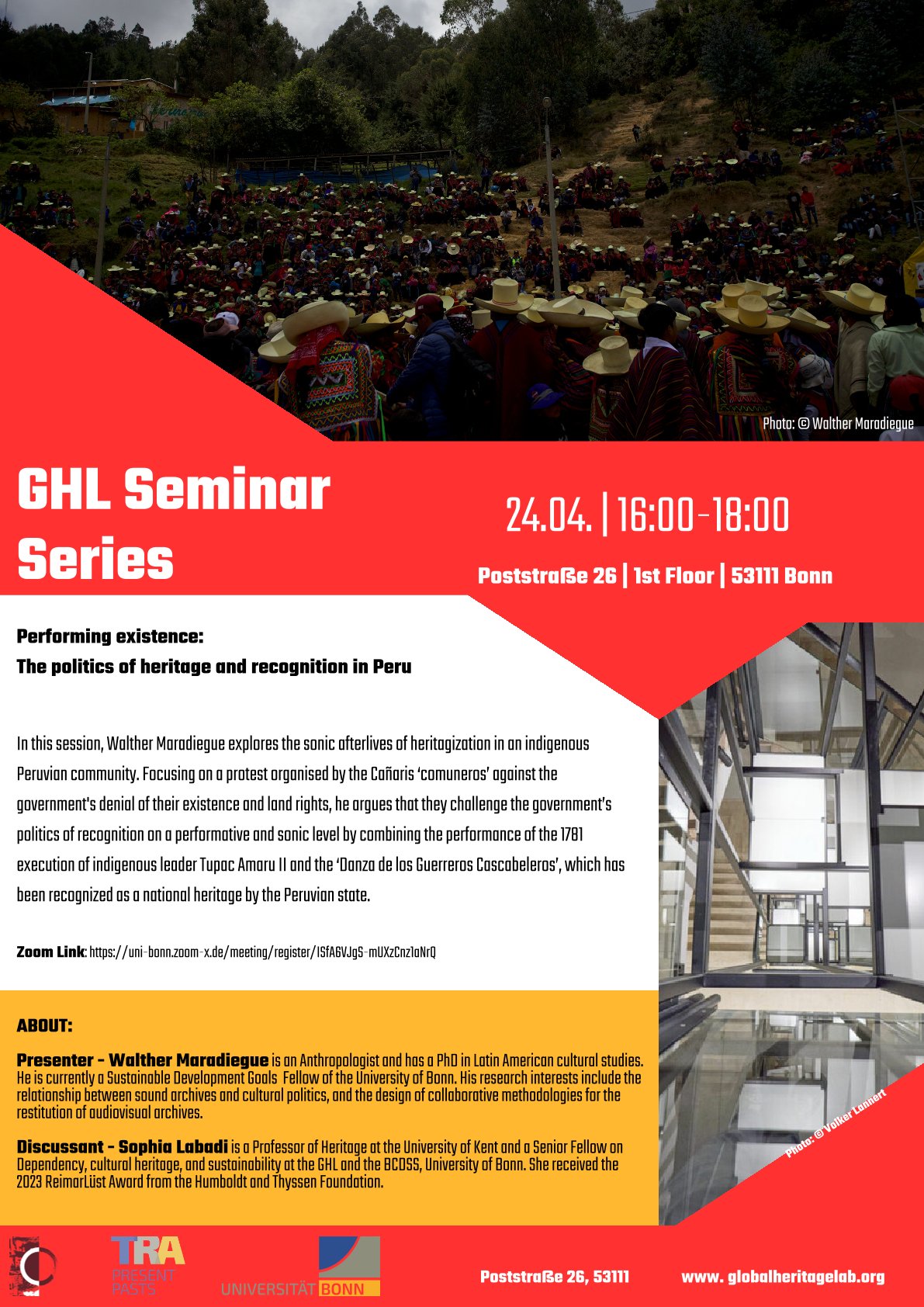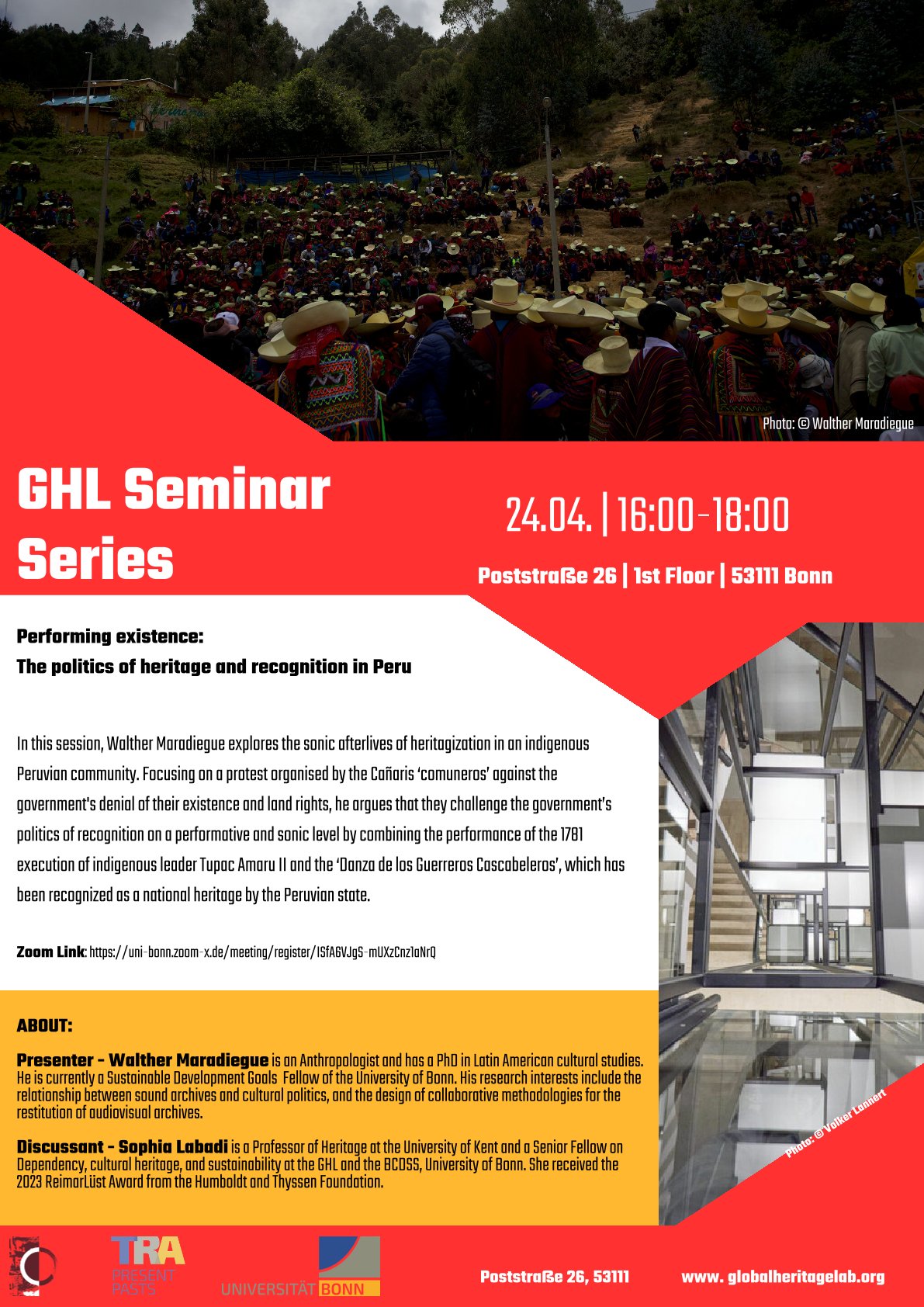
Performing existence: The politics of heritage and recognition in Peru
4 to 6 pm, 24.04.2025
GHL Seminar room at Poststraße 26, 1st Floor
The GHL seminar series continues on Thursday, April 24, from 4 to 6 pm in our GHL Seminar room at Poststraße 26, 1st Floor. As a space for experimentation and dialogue, the series seeks to critically explore multiple pasts and presents to envision alternative futures. It aims to bring scholars and practitioners from across the globe together to engage, interact and address the current global multi-faceted crisis involving economic, ecological, social and cultural challenges and negotiations of heritage and museums as powerfully charged, conflictual, and creative spaces.
In this seminar session, we invite Walther Maradiegue, a scholar from Peru who is currently a Fellow at the Sustainable Development Goals program of the University of Bonn.
Walther Maradiegue will present a preliminary discussion based on his recent fieldwork in Peru on the sonic afterlives of heritage declarations in an indigenous community. He focuses on a public demonstration organized by members of different villages from the Cañaris district in the Northern Peruvian Andes. A couple of years ago, the indigenous community “Tupac Amaru II” was officially declared nonexistent, which allowed the government to concede the community’s territory for mining exploration and exploitation. I focus on a demonstration developed by members of this community in the region’s capital, to make a statement that the community “does exist.” It included dance and a performance; the killing of anti-colonial leader Tupac Amaru II in 1781 was dramatized, followed by the Danza de los Guerreros Cascabeleros (Dance of the Bells Warriors), which was declared a national intangible heritage in 2019.
In this presentation he argues that, by a dramatized portrayal of Peruvian ‘official’ anti-colonial history and a dance recognized by the state as heritage, Cañaris comuneros (community members) seek to transform the politics of recognition designed by the state at a performative and a sonic level. In other words, they seek not only to be recognized and to remind others that a community exists in legal and political terms, but also to transform the terms of such recognition, a debate that takes place in the arena of sound and performance.
About:
Walther Maradiegue is an Anthropologist and has a PhD in Latin American cultural studies. He is currently a Fellow at the Sustainable Development Goals program of the University of Bonn. His research interests include the relationship between sound archives and cultural politics, and the design of collaborative methodologies for the restitution of audiovisual archives.
Sophia Labadi will be the discussant during this session.
She is a Professor of Heritage at the University of Kent and a Senior Fellow on Dependency, cultural heritage, and sustainability at the GHL and the BCDSS, University of Bonn. She received the 2023 ReimarLüst Award from the Humboldt and Thyssen Foundation.
Her current fellowship is co-funded by the TRA5 and the BCDSS.
Join us at the Global Heritage Lab at P26 or online:
https://uni-bonn.zoom-x.de/meeting/register/ISfA6VJgS-mUXzCnz1aNrQ

